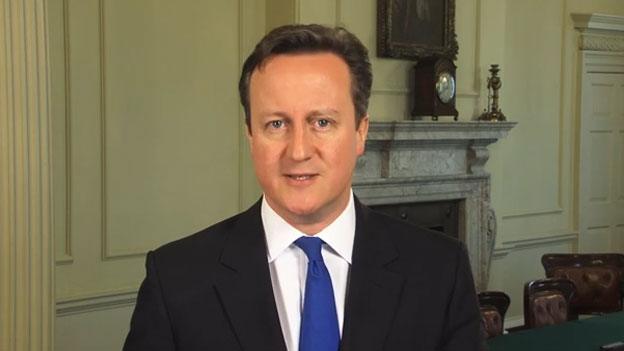UK non-Christian claims 'absurd', senior Tories say
- Published
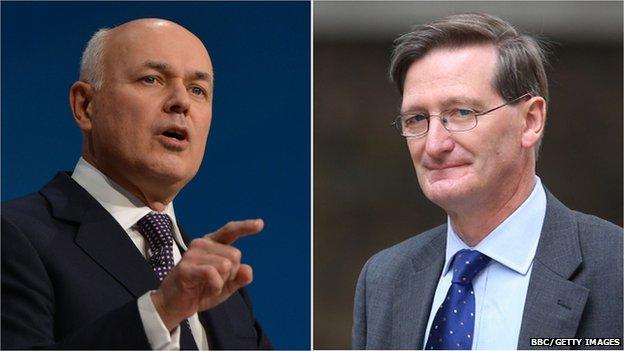
Iain Duncan Smith and Dominic Grieve supported David Cameron's view of Britain as a Christian country
The UK is a Christian country and those who deny it are "deluding themselves", two senior Conservative MPs have said.
Attorney General Dominic Grieve and Work and Pensions Secretary Iain Duncan Smith told the Daily Telegraph, external modern Britain had "Christian heritage".
Deputy PM Nick Clegg has also said it is "obvious" that Christianity is integral to the UK's identity.
A group of public figures recently objected to David Cameron's description of the UK as a "Christian country".
Mr Cameron had also said Britons should be "more confident" in defending "Christian values".
Mr Grieve, a patron of the Conservative Christian Fellowship, said atheism had not made "much progress" in the UK.
"Many of the underlying ethics of society are Christian-based and the result of 1,500 years of Christian input into our national life," he said.
"It is not going to disappear overnight. They [atheists] are deluding themselves."
'Fundamentalism' fear
Mr Grieve went on to say that there had been a rise in the "assertiveness" of some religious groups, which some people with "softer religions" had found "disturbing".
"I do think that the rise of religious fundamentalism is a major deterrent to people," he said.
"It is a big turn-off away from religion generally, and it's very damaging in that context."
Mr Duncan Smith said claims that Britain was not a Christian country were "absurd" and ignored "both historical and constitutional reality".
"It is arguably our Christian heritage, with its innate tolerance and inclusivity, that has ensured the freedom of all voices - religious or non-religious - to be heard and to be valued," he said.
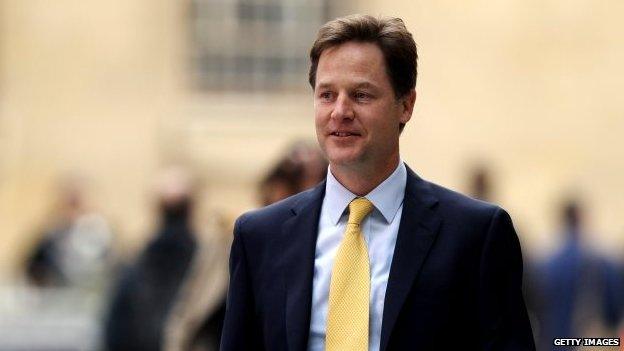
Mr Clegg first revealed in 2007 that he did not believe in God
Asked about the controversy at an event in London, Lib Dem leader Mr Clegg said: "I'm not a man of faith but I think it's stating the obvious that we are a country underpinned, informed, infused by Christian values, Christian heritage, Christian history, Christian culture, and Christian values.
"That is something that is obvious about our identity as a nation.
"We are also a very tolerant nation. In fact one of the great Christian values is tolerance and respect for other people, people of other faiths, other views. So I think our Christian heritage sits very comfortably alongside our plurality and our tolerance as a people."
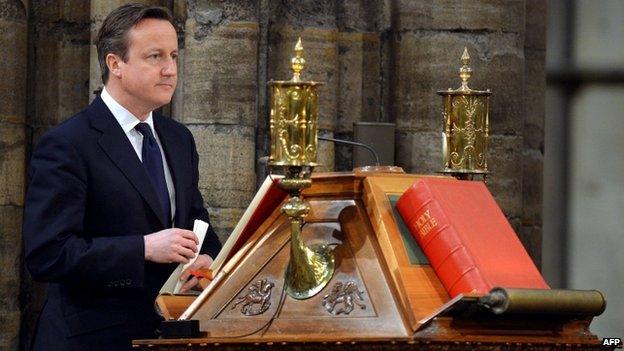
David Cameron was criticised by a group of public figures for his comments on Christianity
A group including academics, authors and philosophers responded in an open letter to the Telegraph, external in which they said Mr Cameron's description of Britain as a Christian country had "negative consequences for politics and society".
The group, which included author Philip Pullman, comedian Tim Minchin and philosopher AC Grayling, wrote: "Repeated surveys, polls and studies show that most of us as individuals are not Christian in our beliefs or our religious identities."
They added that claiming Britain was a religious society "fosters alienation and division".
In response to Mr Grieve and Mr Duncan Smith's comments, Andrew Copson, from the British Humanist Association, said: "We'll leave it to other people to argue whether, in light of its pre-Christian Anglo-Saxon and Roman influences and post-Christian enlightenment influences, our law can be described as Christian."
He said the letter "made it clear that we respect the right of people to their religious beliefs but that in a very diverse society like today's we need to build an inclusive national identity not a narrow one. To try and make this instead a war of words about religion as such is a distraction."
The 2011 census found 59% of people in England and Wales, external said they were Christians - down from 72% a decade earlier.
In Scotland the figure was 54%, external - down from 65% - while the percentage fell slightly to 83% in Northern Ireland, external.
- Published22 April 2014
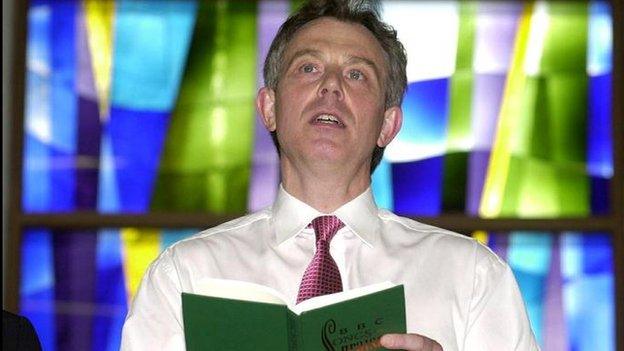
- Published21 April 2014
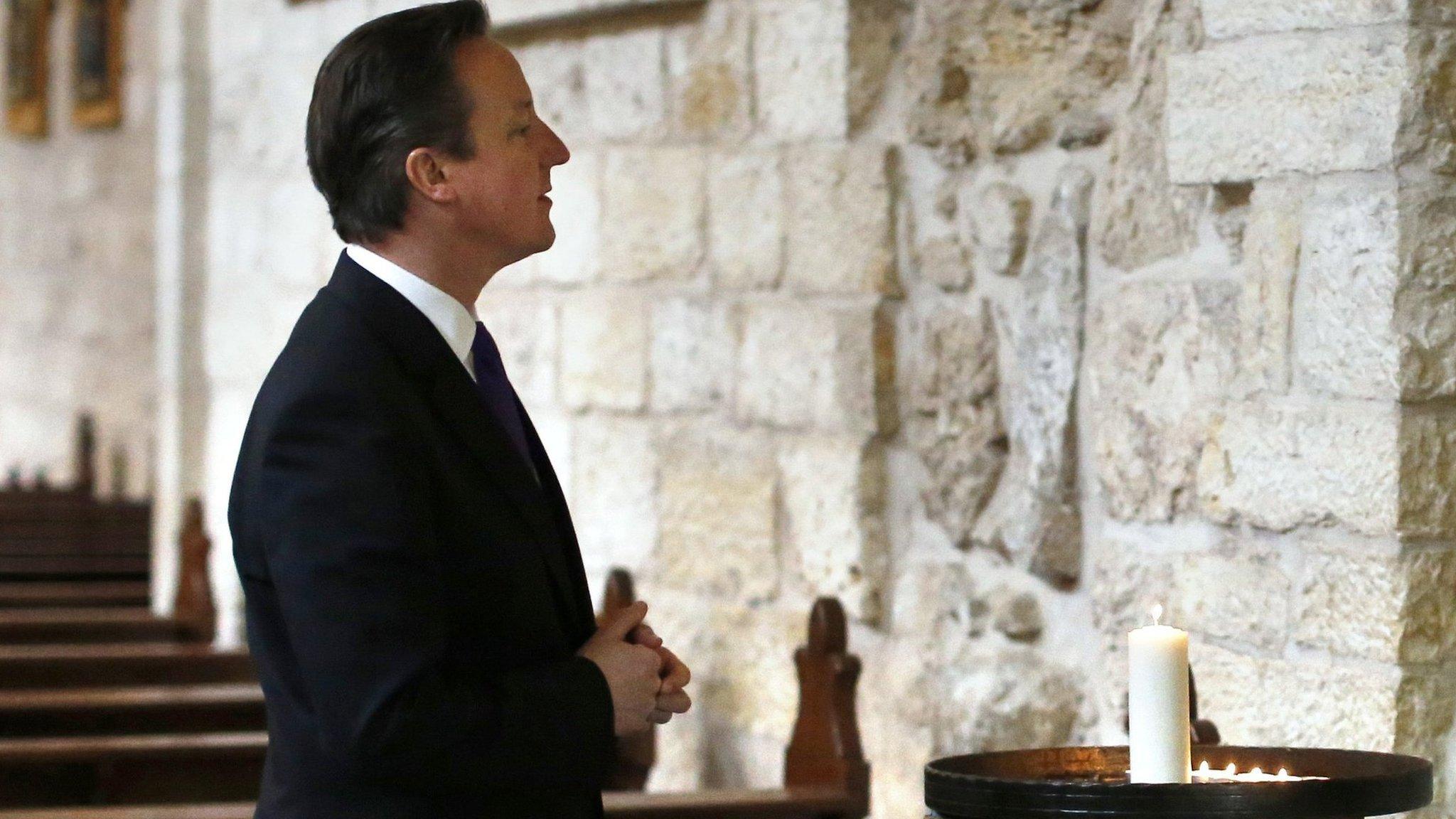
- Published21 April 2014
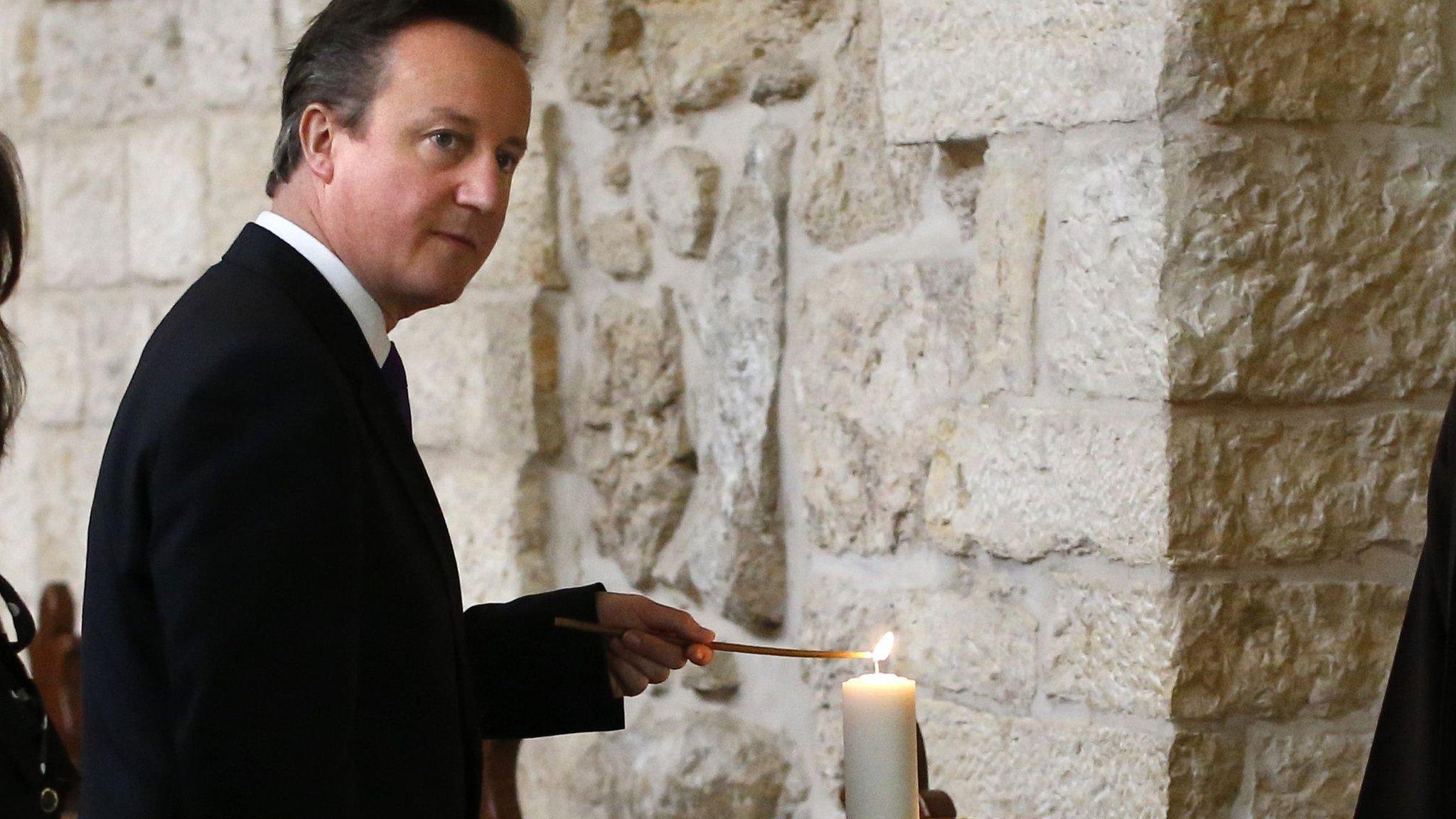
- Published16 April 2014
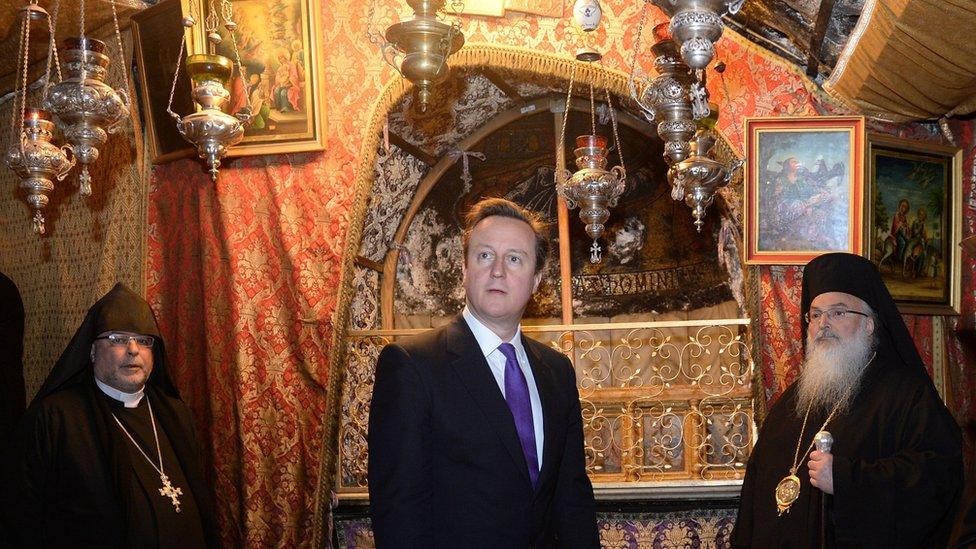
- Published11 April 2014
